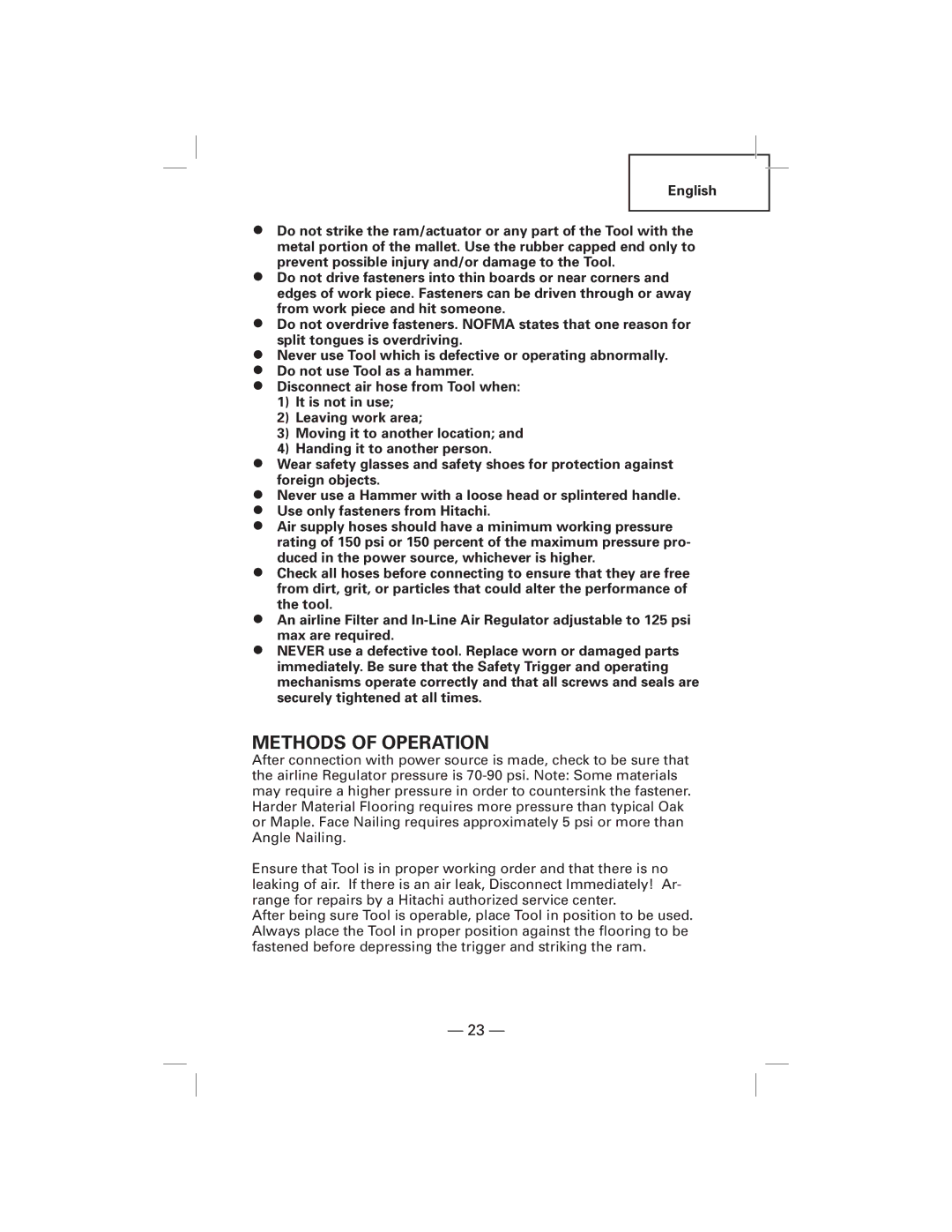
English
•Do not strike the ram/actuator or any part of the Tool with the metal portion of the mallet. Use the rubber capped end only to
•prevent possible injury and/or damage to the Tool.
Do not drive fasteners into thin boards or near corners and edges of work piece. Fasteners can be driven through or away
•from work piece and hit someone.
Do not overdrive fasteners. NOFMA states that one reason for
•split tongues is overdriving.
•Never use Tool which is defective or operating abnormally.
•Do not use Tool as a hammer. Disconnect air hose from Tool when:
1)It is not in use;
2)Leaving work area;
3)Moving it to another location; and
•4) Handing it to another person.
Wear safety glasses and safety shoes for protection against
•foreign objects.
•Never use a Hammer with a loose head or splintered handle.
•Use only fasteners from Hitachi.
Air supply hoses should have a minimum working pressure rating of 150 psi or 150 percent of the maximum pressure pro-
•duced in the power source, whichever is higher.
Check all hoses before connecting to ensure that they are free from dirt, grit, or particles that could alter the performance of
•the tool.
An airline Filter and
•max are required.
NEVER use a defective tool. Replace worn or damaged parts immediately. Be sure that the Safety Trigger and operating mechanisms operate correctly and that all screws and seals are securely tightened at all times.
METHODS OF OPERATION
After connection with power source is made, check to be sure that the airline Regulator pressure is
Ensure that Tool is in proper working order and that there is no leaking of air. If there is an air leak, Disconnect Immediately! Ar‑ range for repairs by a Hitachi authorized service center.
After being sure Tool is operable, place Tool in position to be used. Always place the Tool in proper position against the flooring to be fastened before depressing the trigger and striking the ram.
— 23 —
